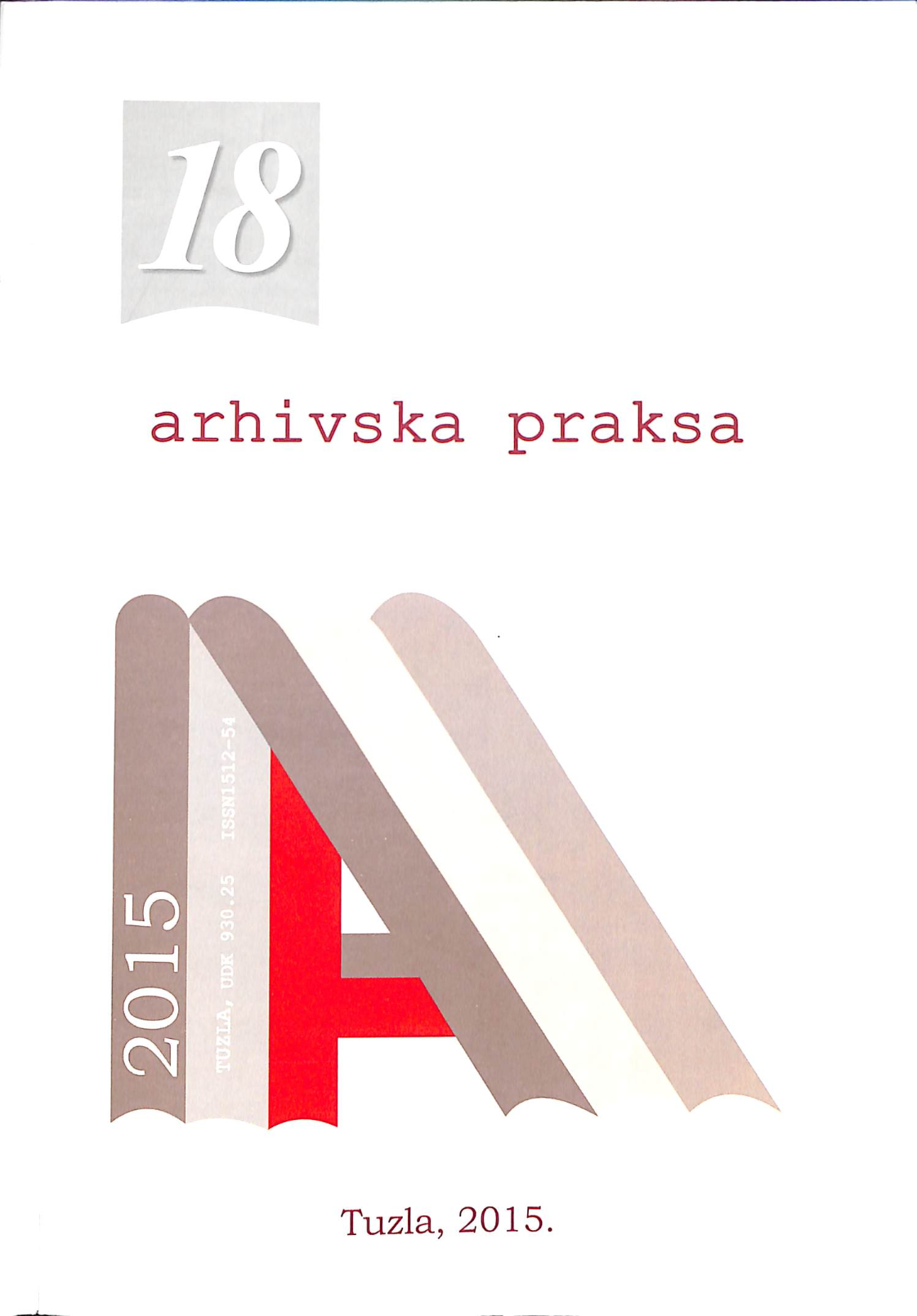
Arhivska građa u vanrednim okolnostima - kako izbjeći najgori scenario
No organization is totally immune from emergencies or disasters, either from natural causes or human action. In order to protect themselves and their assets, including records and archives, many organizations develop ‘emergency plans’, which are also called ‘disaster plans’. Such plans are based on the concept that an organization should identify its assets – including its people, its equipment and supplies – and then establish procedures to protect those assets. The first priority in all emergency planning is to secure human life and safety. The second priority is to ensure that organization can resume its operations and protect its resources. Besides the major benefits of providing guidance during an emergency, developing the plan has other advantages. You may discover unrecognized hazardous conditions that would aggravate an emergency situation and you can work to eliminate them. The planning process may bring to light deficiencies, such as the lack of resources (equipment, trained personnel, supplies), or items that can be rectified before an emergency occurs. In addition an emergency plan promotes safety awareness and shows the organization’s commitment to the safety of workers. Many emergencies cannot be prevented, but their effects can be minimized. Emergencies and disasters can be classified as natural or human caused, and an emergency does not have necessarily to become a disaster. Upon completion of the Emergency Plan, it is important to determine what exactly has to be done in order to protect the archival material. The best way to identify possible risks is to undertake an assessment. When conducting risk assessments, records and archives managers should classify potential risks according to the likelihood that they might happen. Once the risk assessment has been done, an impact analysis helps to determine the potential threat brought by the hazards identified. It is important to consider the effect of each possible type of potential emergency or disaster on records and information sources. An impact analysis involves reviewing the risks identified and determining if the potential threat to the institution – in this instance to its records and archives – is extremely serious, very serious, moderately serious or of minimal concern.Archives of Bosnia and Herzegovina is located in the building of the Presidency, which oversees security service 24/7. There’s an outer ring of protection that controls access to the building, the inner ring, which controls the the visitors and the system of surveillance cameras and sensors. Facilities are checked at the end of working hours and at night, so it is almost impossible that the outbreak of any emergency situation gone unnoticed.So, what could go wrong? Despite all the protections, Archives in the last few years has gone through a flood, a major fire and mold infestation. As Archives has not been able to renew the laboratory for the restoration of archival materials, all necessary rescue procedures were carried out in improvised rooms and with limited resources. Thanks to efforts and patience, the results were good and a large number of damaged documents is still possible to research.This shows the importance of having a reliable Emergency Plan. The most common danger comes from water, fire, armed conflict / demonstrations and careless storage and handling. Following the establishment of the list of potential risks, the impact analysis determines the type of threat that certain risk brings with it, i.e. defines the negative effect of any potential emergency on archival materials. Analysis helps in assessing how much and what kind of damage certain emergency is able to cause to the archive and what actions need to be done to protect property. The risks and their effects can be charted, such as in this paper, shown above. In order to confirm the validity of the risk assessment and performance analysis, it is useful to periodically perform their audit; the most optimal would be once a year.
More...